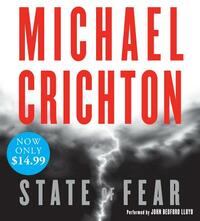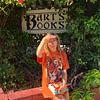Take a photo of a barcode or cover
slow-paced
I can read these books in a day. I love the mix of science and fantasy and mystery.
Too much misinformation about climate change.
Plot or Character Driven:
Plot
Strong character development:
No
Loveable characters:
No
Diverse cast of characters:
No
Flaws of characters a main focus:
No
adventurous
dark
funny
hopeful
mysterious
tense
fast-paced
Plot or Character Driven:
Plot
Strong character development:
No
Loveable characters:
Yes
Diverse cast of characters:
No
Flaws of characters a main focus:
Complicated
adventurous
adventurous
challenging
informative
mysterious
tense
slow-paced
Plot or Character Driven:
Plot
Strong character development:
Complicated
Loveable characters:
Yes
Diverse cast of characters:
Yes
Flaws of characters a main focus:
Complicated
Minor: Body horror, Blood, Kidnapping, Cannibalism, Car accident, Murder, Injury/Injury detail
adventurous
informative
mysterious
tense
medium-paced
Plot or Character Driven:
A mix
Strong character development:
Yes
Loveable characters:
Complicated
Diverse cast of characters:
Yes
Flaws of characters a main focus:
Yes
adventurous
informative
tense
fast-paced
Plot or Character Driven:
Plot
Strong character development:
Yes
Loveable characters:
Complicated
Diverse cast of characters:
No
Flaws of characters a main focus:
Complicated
As with most of Crichton's work, I found this exciting, entertaining and intellectually challenging. I always think people that argued we need not worry about global warning were just stupid but I don't think that in the same sense I did after reading this volume.
Crichton was raked over the coals, so to speak by critics from the literary world but more so but political activists and made fun of his supposed use of "bad science" but Crichton has always been known for his thorough research on the scientific side about any subject he writes and he's done his homework well. I don't know why he was so strongly attracted since he doesn't present the idea that global warming does not exist. What he does provoke thought on is the dangers of politicizing scientific topics where real field research is apparently weak. I had naturally tended to blame greed and industry for much of the problem and the author doesn't deny that but makes strong points for environmentalists causing so many wasted dollars with little if any findings that should cause the panic that the media (also a usual suspect) imply in their slanted reporting. I heartily recommend this for the amazing number of statistics and charts which are not fiction. An example that stays with me is his prediction that the temperature average on a worldwide basis will probably rise perhaps one degree in 50 years. There are so many interesting things he describes that I'll be reading up on the subject a lot. Man can't fix or control nature. I mean to say that the author reminded me that what we can do that may seem beneficial always has another side. Everything effects everything. We don't know how to preserve wildlife on any so-called wildlife preserves.
By far the most interesting and probably what upset people the most was the author's message after the end of the novel. It is Appendix I that really needs to be read and discussed. It's entitled: WHY POLITICIZED SCIENCE IS DANGEROUS. He gives some examples and one, in particular will shock you unless you are familiar with it. Crichton says no one wants to talk or think about it today. We would like to wish it away although people are still in some places thinking about it. It's about something that became big and money was put into it. It was championed by many famous people and caused the death of millions. It was pseudoscience, not real science at all. 29 states passed laws allowing sterilization. We thought we needed to breed out the "feeble minded," the degenerates, imbeciles. The Jews were considered feeble minded and so were most minorities and also the rising tide of immigration was a big concern. We felt we had to stop polluting the human race. This was before the atrocities by Nazi Germany. Most Americans thought the way the Nazis did as did a large part of any society with a white majority. Racism was so common that it wasn't even thought of as racism. Supporters of eugenics were, to name a few, Winston Churchill, Theodore Roosevelt, H.G. Wells, Alexander Graham Bell, the founder of Stanford University, Leland Stanford, playwright George Bernard Shaw, two supreme court justices. Nobel Prize winners supported it, The American Medical Association. Research was backed by both Rockefeller and Carnegie Foundations. The list goes on and on. It was people getting stirred up and a crazy theory taking off like wildfire. Maybe the atrocities perpetrated on the Jews and others in Germany saved some lives. Maybe it took that to bring people to their senses. We, all of us, can become obsessed and motivated by fear to do such crazy things. He even documents that we still murder about 100 people annually for being witches. READ THIS BOOK.
Crichton was raked over the coals, so to speak by critics from the literary world but more so but political activists and made fun of his supposed use of "bad science" but Crichton has always been known for his thorough research on the scientific side about any subject he writes and he's done his homework well. I don't know why he was so strongly attracted since he doesn't present the idea that global warming does not exist. What he does provoke thought on is the dangers of politicizing scientific topics where real field research is apparently weak. I had naturally tended to blame greed and industry for much of the problem and the author doesn't deny that but makes strong points for environmentalists causing so many wasted dollars with little if any findings that should cause the panic that the media (also a usual suspect) imply in their slanted reporting. I heartily recommend this for the amazing number of statistics and charts which are not fiction. An example that stays with me is his prediction that the temperature average on a worldwide basis will probably rise perhaps one degree in 50 years. There are so many interesting things he describes that I'll be reading up on the subject a lot. Man can't fix or control nature. I mean to say that the author reminded me that what we can do that may seem beneficial always has another side. Everything effects everything. We don't know how to preserve wildlife on any so-called wildlife preserves.
By far the most interesting and probably what upset people the most was the author's message after the end of the novel. It is Appendix I that really needs to be read and discussed. It's entitled: WHY POLITICIZED SCIENCE IS DANGEROUS. He gives some examples and one, in particular will shock you unless you are familiar with it. Crichton says no one wants to talk or think about it today. We would like to wish it away although people are still in some places thinking about it. It's about something that became big and money was put into it. It was championed by many famous people and caused the death of millions. It was pseudoscience, not real science at all. 29 states passed laws allowing sterilization. We thought we needed to breed out the "feeble minded," the degenerates, imbeciles. The Jews were considered feeble minded and so were most minorities and also the rising tide of immigration was a big concern. We felt we had to stop polluting the human race. This was before the atrocities by Nazi Germany. Most Americans thought the way the Nazis did as did a large part of any society with a white majority. Racism was so common that it wasn't even thought of as racism. Supporters of eugenics were, to name a few, Winston Churchill, Theodore Roosevelt, H.G. Wells, Alexander Graham Bell, the founder of Stanford University, Leland Stanford, playwright George Bernard Shaw, two supreme court justices. Nobel Prize winners supported it, The American Medical Association. Research was backed by both Rockefeller and Carnegie Foundations. The list goes on and on. It was people getting stirred up and a crazy theory taking off like wildfire. Maybe the atrocities perpetrated on the Jews and others in Germany saved some lives. Maybe it took that to bring people to their senses. We, all of us, can become obsessed and motivated by fear to do such crazy things. He even documents that we still murder about 100 people annually for being witches. READ THIS BOOK.


